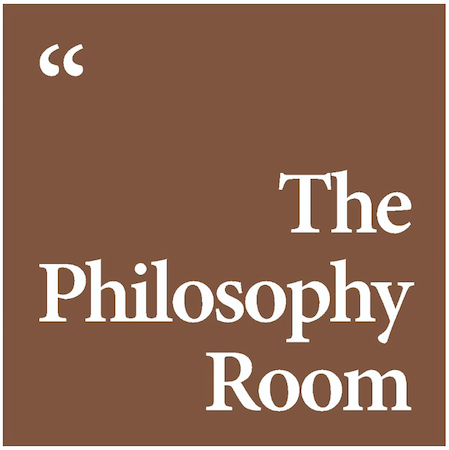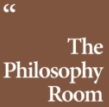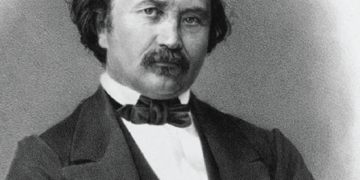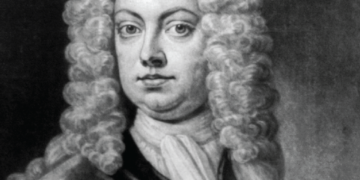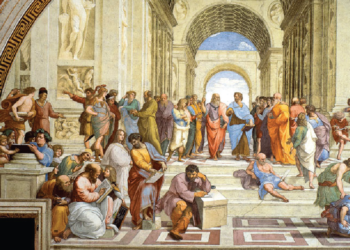John Fortescue
1) His Biography
John Fortescue, an eminent figure in English history, boasts a rich and intriguing biography that spans the 15th century. Born around 1394, in the village of Norris, near Ravenscroft in Cheshire, Fortescue hailed from a family with a longstanding tradition of service to the crown. Little is known about his early life, but his intellect and potential did not go unnoticed. Fortescue’s educational journey led him to Exeter College, Oxford, where he honed his legal acumen and laid the foundation for his future contributions to jurisprudence.
Fortescue’s legal career flourished, and he soon found himself in the service of the English monarchy. His rise to prominence reached a pinnacle when he became the chief justice of the King’s Bench in 1442, a position that solidified his influence in the legal realm. His tenure as chief justice was marked by a commitment to justice and fairness, earning him a reputation as a principled and knowledgeable jurist. Fortescue’s legal expertise was further acknowledged when he was appointed as the chancellor of England by King Henry VI in 1442.
Despite his loyalty to the Lancastrian cause during the Wars of the Roses, Fortescue’s life took a tumultuous turn with the outbreak of hostilities. Following the Lancastrian defeat at the Battle of Towton in 1461, he sought refuge in exile. Fortescue spent much of his time in exile in Scotland and later in France, where he dedicated himself to scholarly pursuits. His commitment to education and intellectual pursuits during this period laid the groundwork for his magnum opus, “De Laudibus Legum Angliae” (In Praise of the Laws of England), a seminal work that remains influential in legal scholarship.
Fortescue’s return to England coincided with the restoration of the Lancastrian line under Henry VII in 1485. Despite his earlier allegiance, he managed to secure a pardon and returned to his homeland. Fortescue’s later years were marked by his engagement with political and academic circles. He continued to contribute to legal discourse and served as an advisor to the king. His legacy endures through his writings and the impact he had on the development of English law, solidifying John Fortescue as a pivotal figure in the annals of legal history.
2) Main Works
De Laudibus Legum Angliae (In Praise of the Laws of England):
This magnum opus, written during John Fortescue’s exile in the mid-15th century, stands as a cornerstone in the history of English legal literature. In this comprehensive work, Fortescue provides a detailed and insightful analysis of the English legal system, extolling its virtues and uniqueness. The treatise covers various aspects of the legal framework, including the role of the monarch, the parliamentary system, and the common law. Fortescue’s keen observations and erudition make “De Laudibus Legum Angliae” an invaluable resource for understanding medieval English law and governance.
The Governance of England (De Natura Legis Naturae):
Another significant contribution to political philosophy and governance, “The Governance of England,” also known as “De Natura Legis Naturae,” explores themes related to the nature of law, justice, and the ideal structure of government. Fortescue draws on his experiences as a jurist and statesman to propose a constitutional model that reflects his commitment to the rule of law. The work showcases Fortescue’s intellectual depth and his vision for a just and stable political order.
Legal Writings and Treatises:
Beyond his major works, John Fortescue left a legacy of legal writings and treatises that contributed to the evolution of legal thought in medieval England. These writings covered a range of legal topics, including procedural law, the role of judges, and the principles of equity. Fortescue’s legal insights and expertise, as reflected in these writings, reinforced his standing as a preeminent legal scholar of his time.
Political Counsel to Princes:
In addition to his formal written works, Fortescue offered political counsel to the rulers of his era, particularly during his later years when he returned to England. His advice encompassed matters of governance, law, and the king’s relationship with his subjects. While not compiled into a single treatise, Fortescue’s political counsel played a vital role in shaping the policies and decisions of the Lancastrian monarchs, contributing to the broader political landscape of late medieval England.
Legal and Historical Commentaries:
Fortescue’s extensive knowledge of legal principles and history found expression in numerous commentaries. These writings provided detailed explanations and interpretations of legal doctrines, historical events, and the evolving nature of English law. His commentaries served as educational tools for those studying law and history, leaving an enduring mark on the understanding of legal concepts in medieval England.
3) Main Themes
Constitutional Monarchy and the Rule of Law:
In John Fortescue’s works, a central theme revolves around the concept of constitutional monarchy and the importance of the rule of law in governing a just society. Fortescue’s distinctive contribution lies in his advocacy for a balanced relationship between the monarch and the law, emphasizing the monarch’s duty to rule in accordance with established laws. Unlike the absolute monarchies of his time, Fortescue’s vision of constitutional monarchy posited that even the king is bound by the law.
This idea was revolutionary in the context of medieval political thought, challenging the prevailing notion of unchecked royal authority. Fortescue’s perspective can be contrasted with contemporaries like Thomas Aquinas, who, while acknowledging the importance of law, did not explicitly advocate for legal limitations on the monarch. The lasting impact of Fortescue’s ideas can be seen in the subsequent development of constitutional theory and the evolution of constitutional monarchies.
The Role of Parliament and Representative Government:
Fortescue’s writings delve into the role of parliament as an essential component of governance. He championed the idea that the king should work in tandem with parliament, fostering a system of representative government. Fortescue’s insight lies in his recognition of the importance of parliamentary participation in decision-making, reflecting a nascent form of constitutionalism.
This stands in contrast to the absolutist views of thinkers like Jean Bodin, who argued for the sovereignty of the monarch without the need for parliamentary checks. Fortescue’s emphasis on the cooperative relationship between the monarch and parliament foreshadowed later developments in constitutional history, influencing the emergence of parliamentary supremacy and representative democracy.
Natural Law and Justice:
Natural law and justice feature prominently in Fortescue’s works, where he explores the inherent moral principles that should underpin legal systems. Fortescue’s original contribution lies in his nuanced understanding of natural law as a foundation for positive law. He argued that the laws of England were not arbitrary but based on universal moral principles, making them just and valid.
This perspective contrasts with legal positivists like Thomas Hobbes, who believed that laws derive their legitimacy solely from the authority of the sovereign. Fortescue’s integration of natural law into the legal framework influenced subsequent thinkers such as John Locke, who further developed the concept of natural rights. Fortescue’s emphasis on the moral foundations of law contributed to the broader discourse on the relationship between ethics and jurisprudence.
Education and Intellectual Culture:
Beyond political and legal theory, Fortescue was a proponent of education and intellectual cultivation. This theme is evident in his treatises, especially during his period of exile when he dedicated himself to scholarly pursuits. Fortescue’s original contribution lies in his belief that an educated and virtuous ruling class is crucial for the well-being of the state. He proposed a curriculum that combined legal studies with a broader education in the humanities, echoing the humanist ideals of his time.
Fortescue’s views on education can be compared to those of contemporaries like Desiderius Erasmus, who also championed a humanistic education that cultivated both intellectual and moral virtues. Fortescue’s influence on educational philosophy underscores the interconnectedness of intellectual and political developments in the Renaissance period.
Just War Theory and Political Exile:
Fortescue’s experiences during the Wars of the Roses influenced his reflections on just war theory and the plight of political exiles. In his works, he contemplated the ethical principles governing the conduct of war and the legitimacy of armed conflict. Fortescue’s original contribution lies in his attempt to reconcile the demands of loyalty to the crown with the moral imperatives of a just war.
This perspective contrasts with Machiavelli, who, in “The Prince,” often prioritized pragmatic considerations over ethical concerns in matters of war and statecraft. Additionally, Fortescue’s writings on political exile provide insights into the challenges faced by those displaced by political upheavals. His reflections on the moral dilemmas of political exile contribute to the broader ethical discussions surrounding the consequences of conflict and displacement.
4) English Law after Fortescue
The impact of John Fortescue on English law reverberates through the centuries, shaping the legal landscape long after his time. His seminal work, “De Laudibus Legum Angliae,” laid the groundwork for the development of English law, and its influence is particularly evident in several key aspects that defined the legal system in the subsequent centuries.
One enduring legacy of Fortescue’s contributions is the emphasis on the common law tradition. Fortescue, through his meticulous analysis of English legal principles, highlighted the role of precedent and custom in the formation of law. This emphasis on case law and judicial decisions as foundational to legal reasoning became a hallmark of the English legal system. The concept of stare decisis, the principle of deciding cases based on precedent, has its roots in Fortescue’s recognition of the value of consistency and predictability in the application of law.
Furthermore, Fortescue’s writings played a crucial role in the conceptualization of the separation of powers within the English legal and political framework. While not explicitly articulated in the same terms as later thinkers like Montesquieu, Fortescue’s delineation of the distinct functions of the monarch, the parliament, and the judiciary laid the groundwork for the evolving understanding of the separation of powers. This framework became integral to the development of constitutional theory and the establishment of a system of checks and balances that characterizes modern governance.
Fortescue’s influence is also discernible in the evolution of legal education. His emphasis on the importance of a well-rounded education, encompassing not only legal studies but also broader intellectual pursuits, contributed to the development of legal education in England. The incorporation of humanities and a holistic approach to education became embedded in the culture of legal training, influencing institutions such as the Inns of Court and later the law schools of the modern era.
Despite the turbulence of the Wars of the Roses, Fortescue’s ideas on the rule of law persisted. As England transitioned from medieval to early modern times, legal scholars and practitioners continued to draw inspiration from Fortescue’s emphasis on the supremacy of law over arbitrary rule. This commitment to the rule of law became a foundational principle in the development of constitutionalism and the establishment of legal frameworks that restrained the power of the monarchy.
In the realm of legal philosophy, Fortescue’s integration of natural law principles into the legal system left a lasting legacy. His recognition that laws should be grounded in universal moral principles influenced subsequent thinkers who grappled with questions of legal legitimacy and ethics. The echoes of Fortescue’s ideas can be traced in the works of legal theorists who explored the intersection of law, morality, and justice in the centuries that followed.
5) His Legacy
John Fortescue’s legacy extends far beyond his lifetime, leaving an indelible mark on English legal and political thought. His contributions to jurisprudence, constitutional theory, and political philosophy have endured through the centuries, shaping the course of legal development and influencing subsequent generations of scholars, thinkers, and practitioners. Several key facets contribute to the enduring legacy of John Fortescue.
First and foremost, Fortescue’s legacy lies in his profound impact on the evolution of English constitutionalism. His writings, particularly “De Laudibus Legum Angliae,” laid the groundwork for the development of constitutional principles that emphasized the rule of law, the separation of powers, and the importance of representative government. These ideas became foundational to the English constitutional tradition, influencing the framing of legal and political structures that continue to define governance in the United Kingdom.
Fortescue’s emphasis on the rule of law as a fundamental principle of governance left an enduring legacy that transcended the turbulent times in which he lived. His insistence that even the monarch is subject to the law contributed to the development of constitutional limitations on royal authority. This concept became integral to the development of constitutional monarchies and the broader establishment of legal frameworks that restrained arbitrary power, laying the groundwork for the modern understanding of the rule of law.
The legacy of John Fortescue is also evident in his contributions to legal education. His advocacy for a comprehensive and humanistic approach to legal training, as reflected in his writings on education and intellectual culture, influenced the development of legal education in England. The Inns of Court, which played a crucial role in legal training, adopted Fortescue’s vision of a well-rounded education that combined legal studies with broader intellectual pursuits. This legacy continues to shape legal education, with modern law schools embracing a holistic approach that goes beyond the technical aspects of law.
Furthermore, Fortescue’s exploration of natural law principles and their integration into the legal system had a lasting impact on the trajectory of legal philosophy. His recognition that laws should be grounded in universal moral principles contributed to the development of natural law theory, influencing subsequent thinkers who grappled with questions of legal legitimacy, ethics, and justice. Fortescue’s ideas reverberated through the works of legal theorists who sought to reconcile positive law with higher moral principles.
In the realm of political thought, Fortescue’s legacy endures as a precursor to later discussions on the nature of government and the rights of individuals. His articulation of the relationship between the ruler and the ruled, the importance of parliamentary participation, and the duty of the monarch to uphold the law set the stage for later developments in political philosophy. Fortescue’s ideas laid the groundwork for the conceptualization of constitutional governance and individual rights that would become central to the Enlightenment and the development of modern political theory.
6) Some Quotes
“The king himself should be under no man, but under God and the law, for it is the law that makes him king.” – John Fortescue
“Nature has ordained every king to be under the law.” – John Fortescue
“And to the end that all things may be done decently and in order, it is necessary that the people should pay due obedience to their sovereign, for if every one were a law to himself and his own cause, he would be under no law.” – John Fortescue
“The law of England is the most excellent law under heaven.” – John Fortescue
“For laws are never made without reason.” – John Fortescue
